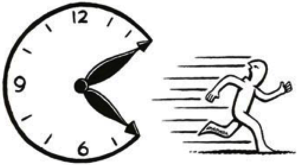Being Mindful of Your Character Strengths: The mPEAK Program
Using our personal strengths can enhance our mindfulness but mindfulness can also help us better use our strengths in life, work or sport. In the mPEAK program, participants become aware of how and when they are using their strengths and the results that they’re getting so that they can understand how to use them to the best effect.
 Researchers at UC San Diego School of Medicine who have been working with Olympic BMX cyclists to improve their athletic prowess have documented areas of the brain that appear to respond to mindfulness training.
Researchers at UC San Diego School of Medicine who have been working with Olympic BMX cyclists to improve their athletic prowess have documented areas of the brain that appear to respond to mindfulness training.
 “Performance Enhancement” is a popular goal in my line of work that is typically associated with the supplement industry or return on investment (ROI) business strategies. Images are conjured up of competitive athletes in bright lycra crossing finish lines, a lone climber summiting a mountain with ice picks or people in suits shaking hands on big business deals.
“Performance Enhancement” is a popular goal in my line of work that is typically associated with the supplement industry or return on investment (ROI) business strategies. Images are conjured up of competitive athletes in bright lycra crossing finish lines, a lone climber summiting a mountain with ice picks or people in suits shaking hands on big business deals.